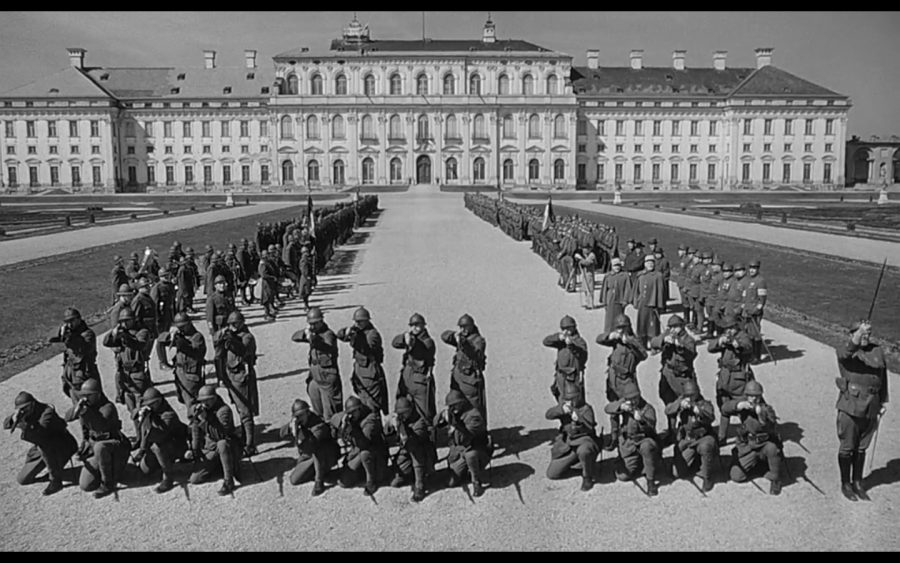Stanley Kubrick / US / 1957 / 88minutes
Available on Blu-Ray
Like films of the Holocaust, those of the First World War can never quite capture the mix of horror and tragedy of these two events. In this, the 100th anniversary year of the carnage of the battle of the Somme, it’s impossible to imagine the hell of the trenches.
Kubrick’s seventh feature film wisely doesn’t dwell on the blood and muck aspects but exposes the old claim of lions led by donkeys – the brave French conscripts seem totally expendable by the generals. Responsible for 8,000 men, can General Mirea (George Macready) really be talked into a suicidal attack on the German position, known as the Anthill, just to gain kudos and a gong? The contrast of the general’s sumptuous, wedding cake château with the fortified trenches is startling. The general won’t, of course, be doing the fighting, he has to convince Colonel Dax (Kirk Douglas) into leading his men on a futile, exhausting mission on which the general calculates half the soldiers will be killed. There follows a mutiny and show trial.
It would be wrong to think of Paths of Glory as just another war film. It’s a deeper, more thought-provoking story that questions the logic and morality of war, the nature of patriotism, and the true horror of bad leadership; not to mention the recklessness of the military boss class, the nature of cowardice, and the hopeless position people often find themselves in when they try to right the wrongs of their superiors.
It’s very much Kirk Douglas’ movie (one of the best performances of his career). It may also be Kubrick’s best film as well. He and the star collaborated once again in the epic Spartacus (1960). In lesser hands than Kubrick’s Paths of Glory might have been a gung-ho melodrama of the worst sort. And although some of the minor-role acting can appear a tad stagey at times, the futile assault on the Anthill makes for uncomfortable and edge-of-the-seat viewing. Men with only bayonets face heavy artillery and are cut down. Douglas is terrific as the soldier, and later as defender of the accused men who face the firing squad for insubordination, and has to face charges of disloyalty to his commanding officer and square these with the loyalty to his men. Will ‘military justice’ or rational humanity prevail?
This is a stinging, stonking tale – Kubrick was still not yet 30 when he made it. The casting is superb, the photography stunning and Kubrick’s direction faultless, although a world away from A Clockwork Orange or 2001. Look out for the weird and wonderful, hangdog Timothy Carey as one of the soldiers on trial.
